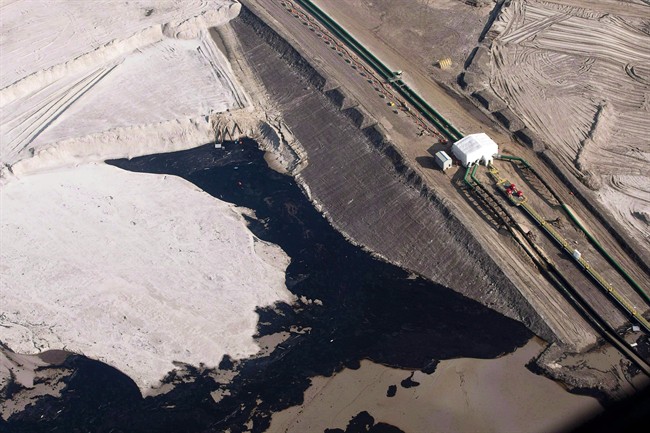EDMONTON – Alberta Premier Alison Redford is dispatching two senior ministers across the Atlantic on a barnstorming blitz to head off a proposed European Union resolution impacting the oilsands.

International Relations Minister Cal Dallas and Environment Minister Diana McQueen will visit European capitals from Sweden to Romania for a week beginning Saturday to talk to government members, influence-makers, and fence-sitters about their concerns over the EU’s Fuel Quality Directive.
“We support measures that would result in a lower carbon footprint,” said Dallas in an interview.
“(But) this is a very high-profile initiative that could potentially be adopted in much the same format in other jurisdictions, so we want to make sure that we’ve done our part to have the discussion about ensuring that (sound) science is the basis of the implementing measures.”
The directive, known as FQD for short, was first proposed two years ago.
It would put a higher carbon footprint rating on oil coming from the oilsands as opposed to oil produced by more conventional methods.
If approved, the FQD would see European countries importing the bitumen be subject to penalties or forced to jump through so many bureaucratic and regulatory hoops it wouldn’t be worth the effort.
The EU environment ministers are expected to vote on the directive before the end of the year and, if approved, it would then go for ratification by the individual countries.
Both Alberta and Prime Minister Stephen Harper’s federal government are challenging the EU’s scientific data, which pegs bitumen as 22 per cent more greenhouse gas intensive than conventional oil.
Last month, federal Natural Resources Minister Joe Oliver sought bidders to analyse the EU’s data.
Dallas said the province isn’t blind to the fact Alberta needs to do a better job on greening the oilsands, but he said the FQD as it stands is not the way to go.
He said the 22 per cent number is too blunt a tool and doesn’t take into account the various types of oil, geographies and extraction techniques.
“We’ve continuously made improvements in terms of the wells-to-wheels total impact of the oil that’s being extracted in the oilsands area,” he said.
“The upside continues there in terms of (greenhouse gas emissions), water use (and) a whole number of areas that obviously the (EU) baseline work did not account for.
“While we’re at the higher end of the scale, we’re not the highest by any stretch.”
Alberta, he said, is also being penalized for being up front with its emissions data. He said other jurisdictions are not as frank about flaring and venting, thereby skewing the data in favour of conventional oil production.
The FQD would not directly harm Alberta in the short term, as it does not ship directly to Europe.
But it could have far-reaching implications, setting a precedent and lending weight to critics who say the complicated and intensive oilsands extraction process is not worth the extra greenhouse gas emissions it produces.
There is also the possibility that Alberta’s biggest oil customer, the United States, could follow suit with a similar directive.
The FQD could also throw a wrench into key projects like the proposed Keystone XL pipeline, which, if approved by U.S. President Barack Obama, would ship Alberta oilsands bitumen to refineries on the Gulf Coast in Texas.
The FQD could raise questions about whether the Europeans would accept refined oil from the United States that originated from the oilsands.
Dallas said he and McQueen will emphasize Alberta’s efforts on environmental monitoring, greenhouse gas reduction, and investment in alternative energy technologies.
Dallas will travel to Bulgaria, Hungary, Romania, Lithuania, and Latvia.
McQueen will head to France, Austria, Croatia, Greece, and Sweden.
The total cost for the two ministers and two staffers on the mission is $85,700.



Comments